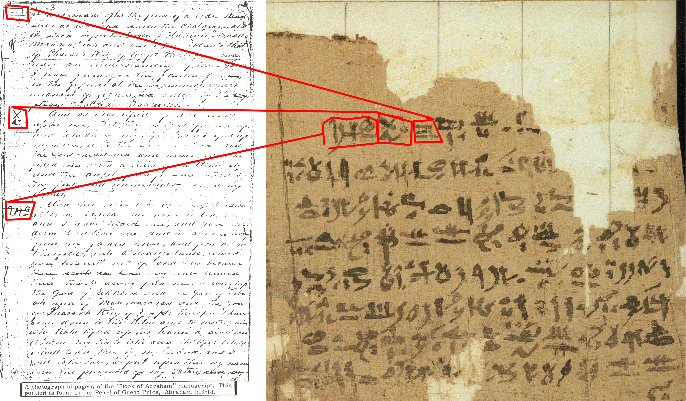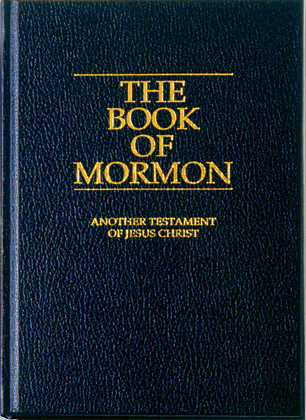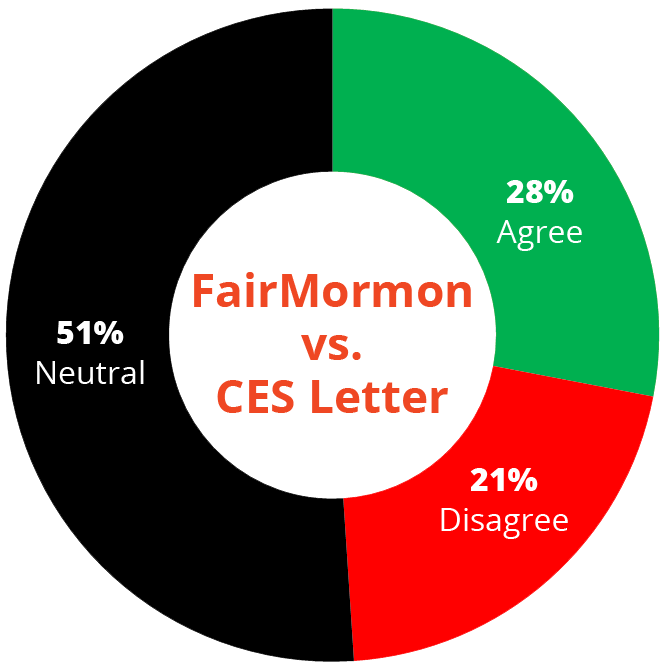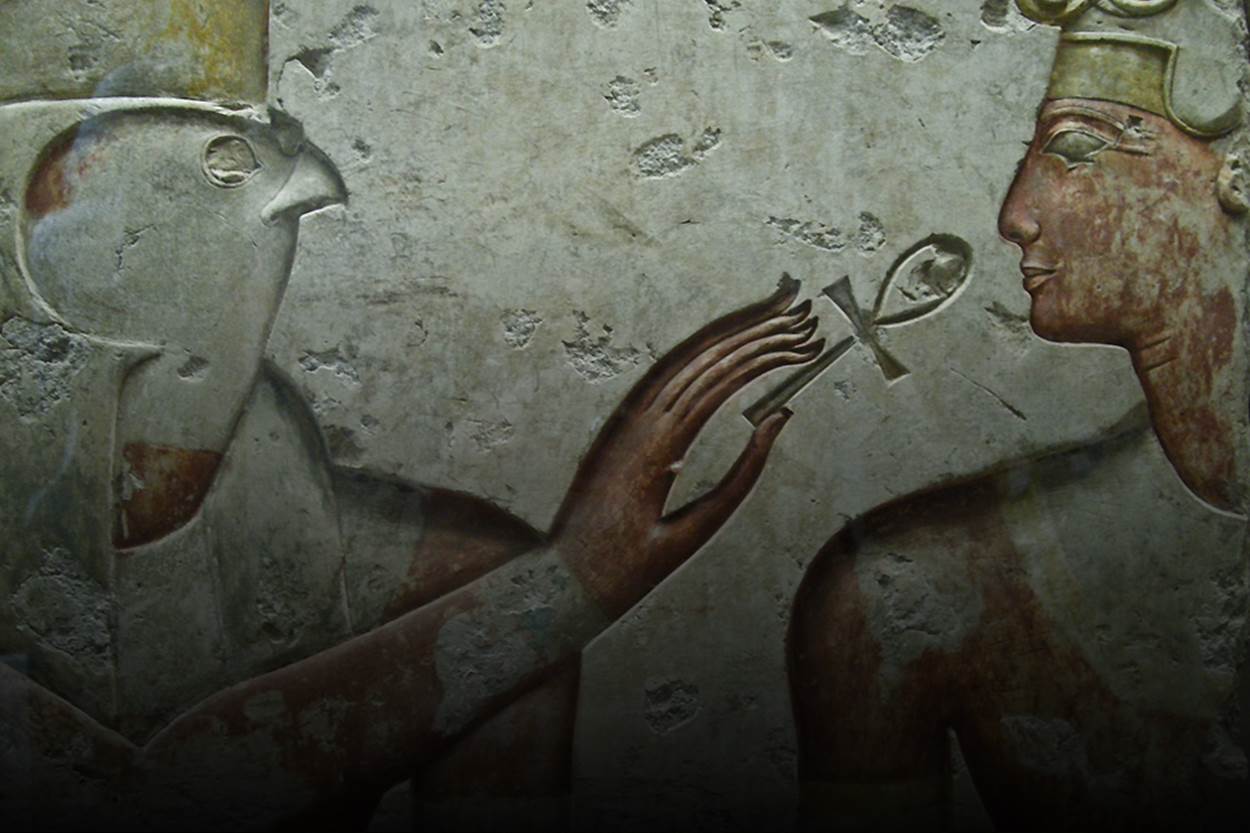Exactly. Couldn't agree more. That was my whole point about Smith's translation .What do Egyptologists say about the Book of Abraham?
“Common Pagan Funerary Text”
“Egyptologists have also since translated the source material for the Book of Abraham and have found it to be nothing more than a common pagan Egyptian funerary text …it was a common Breathing Permit that the Egyptians buried with their dead.Jul 30, 2023

LDS Gospel Topics Essay: The Book of Abraham Historicity (Annotated)
The annotation of the official LDS Gospel Topics Essay on the Book of Abraham. We discuss how Joseph Smith translated the facsimilies, why historians believe it is not a true record, and what the Mormon church now claims about its historicity.www.ldsdiscussions.com
A comparison of the Book of Abraham (as contained in The Pearl of Great Price) with the Egyptian papyrus indicates Joseph Smith did not accurately translate the hieroglyphics. Rather, it appears he made up much of the “translation.” There are multiple insights to be gleaned from this observation.
First, if Joseph Smith could not translate Egyptian accurately, then his “translation” of the Book of Mormon cannot be trusted either. For those not familiar with the story, Joseph Smith claimed that the angel Moroni appeared to him and gave him golden tablets which contained ancient Egyptian on them. Yet, if Smith could not translate Egyptian, then the entire Book of Mormon is dubious.
Second, since Joseph Smith claimed to be a prophet of God, he is held to the standard of truthfulness expected of prophets (cf. Deut 18:20–22). Since he is demonstrably lying about his translation of the Egyptian texts, he should be considered a false prophet and a deceiver.
Finally, all of this leads to the inescapable conclusion that Mormonism is a faulty religion based on a false prophet, utilizing falsified holy writings. This is a serious charge, but one that is backed up by the evidence.
As I said at the beginning, I love my Mormon friends.

The Book of Abraham and the Mormon Translation Problem – PeterGoeman.com
Mormonism believes in the inspiration of the Bible (like Christians), but they also embrace three other inspired books: The Book of Mormon, The Doctrine and Covenants, and The Pearl of Great Price. Although each of these “extra” books is worth talking about in their own right, I want to briefly...petergoeman.com

The Book of Abraham Crisis: A History
by Christopher C. Smith Christopher C. Smith is a PhD candidate at Claremont Graduate University and is completing a dissertation on early Mormon views of Native Americans. Stage 1, 1860–186…sunstone.org

Debunking FairMormon - Book of Abraham - CES Letter
The Book of Abraham is the smoking gun of Mormonism.cesletter.org
The Book of Abraham Issues - Translation Problems
Egyptologists study the three Facsimiles included in the Book of Abraham as well as Joseph Smith's translation of these Facsimiles. Most LDS members are unaware of these problems.www.mormonthink.com

How the Book of Abraham Exposes the False Nature of Mormonism | Cold Case Christianity
By taking an evidential approach to Christian and Mormon scripture, I confirmed the veracity of Christianity and guarded myself from the falsity of Mormonismcoldcasechristianity.com
Interesting that the Bible is "the Word of God", unless someone quotes a translation you disagree with.
- Thread starter St. SteVen
- Start date
-
Welcome to Christian Forums, a Christian Forum that recognizes that all Christians are a work in progress.
You will need to register to be able to join in fellowship with Christians all over the world.
We hope to see you as a part of our community soon and God Bless!
You are using an out of date browser. It may not display this or other websites correctly.
You should upgrade or use an alternative browser.
You should upgrade or use an alternative browser.
Yes, the verse in question is a bit of a side comment on the chapter context about the resurrection of the dead.Among the many false beliefs and distortions creeping into the Church at the time one was that one could be baptised for those who had died but didn't get baptised.
Paul is countering the disbelief in the resurrection (the context tells us this) by making the point that if the dead aren't raised then what is the point of getting baptised for them.
He chooses a very strange thing to make his point. He clearly asks:
- What will the unbaptized dead do if the baptisms done on their behalf will not result in their resurrection from the dead?
- Why are the dead baptized for if there is no resurrection from the dead?
Where there is no prohibition, there is acceptable behavior. Like polygamy in the church for non-Elders.
I guess the "false view" is debatable.Another example of using a false view to highlight a truth is Jesus' story of Lazarus and the Rich Man. His point was, 'if they don't believe Moses and the Prophets, they won't believe even if one rose from the dead.
Agree.1....Paul was highlighting the the validity of the resurrection from the dead; he was not making a case for baptism for the dead.
But he certainly wasn't making a case against it.
One of several interpretations of that story.2...Jesus is not giving a sermon on the afterlife, he is telling them that Moses and the Prophets spoke about being kind and caring for the disadvantaged by using a then currently circulating myth. The punch line being at the end of the story.
Do you believe that the dead will be separated into two groups? (or more) ???
I tie the great chasm to this scripture at the bottom.
"... a great chasm has been set in place, so that those who want to go from here to you cannot,
nor can anyone cross over from there to us.’
John 5:24 NIV
“Very truly I tell you, whoever hears my word and believes him who sent me has eternal life
and will not be judged but has crossed over from death to life.
/
How do we answer the two questions the Apostle asks? (scripture below)(2) by others, that the word "baptized" here is taken in the sense of washing, cleansing, purifying, as in Matthew 8:4; Hebrews 9:10; and that the sense is, that the dead were carefully washed and purified when buried, with the hope of the resurrection, and, as it were, preparatory to that.
He clearly asks:
- What will the unbaptized dead do if the baptisms done on their behalf will not result in their resurrection from the dead?
- Why are the dead baptized for if there is no resurrection from the dead?
What do burial rites have to do with whether, or not, there is a resurrection of the dead?
And perhaps you correct about the reference to burial rites. But the Apostles is indicating an intended purpose here.
To assure the unbaptized dead of a resurrection.
(or hope for the living that were concerned for their believing loved ones who had passed on)
1 Corinthians 15:29 NRSVUE (New Revised Standard Version Updated Edition)
Otherwise, what will those people do who receive baptism on behalf of the dead?
If the dead are not raised at all, why are people baptized on their behalf?
/
Rella ~ I am a woman
Well-Known Member
I think the why is easier to answer. More then likely they were taught this by a teacher or clergy.How do we answer the two questions the Apostle asks? (scripture below)
He clearly asks:
- What will the unbaptized dead do if the baptisms done on their behalf will not result in their resurrection from the dead?
- Why are the dead baptized for if there is no resurrection from the dead?
What do burial rites have to do with whether, or not, there is a resurrection of the dead?
And perhaps you correct about the reference to burial rites. But the Apostles is indicating an intended purpose here.
To assure the unbaptized dead of a resurrection.
(or hope for the living that were concerned for their believing loved ones who had passed on)
1 Corinthians 15:29 NRSVUE (New Revised Standard Version Updated Edition)
Otherwise, what will those people do who receive baptism on behalf of the dead?
If the dead are not raised at all, why are people baptized on their behalf?
/
People to this day still believe the clergy can do no wrong on their teachings... you know this is true.
Back when the idea of resurrection was fairly new.... all they would have needed would be for someone of rank to suggest ... or perhaps agree... that it would help at minimum.
To this day the RCC prays for the dead, and they offer up mass for the dead. Was this carried down the centuries from those that would be baptised for the dead?
But we know... or should that praying for the dead is not a biblical concept. Our prayers have no bearing on someone once he or she has died. The reality is that, at the point of death, one’s eternal destiny is confirmed. Either he is saved through faith in Christ Jesus or will be in eternal punishment....
“Just as man is destined to die once, and after that to face judgment” (Heb 9:27). Here we understand that no change in one’s spiritual condition can be made following his death—either by himself or through the efforts of others.
quietthinker
Well-Known Member
It's a story to make a point.....The Hebrews loved stories because they told pertinent points ..... It's the point that matters not the details. The story of the Prodigal Son is another.Yes, the verse in question is a bit of a side comment on the chapter context about the resurrection of the dead.
He chooses a very strange thing to make his point. He clearly asks:
- What will the unbaptized dead do if the baptisms done on their behalf will not result in their resurrection from the dead?
- Why are the dead baptized for if there is no resurrection from the dead?
Where there is no prohibition, there is acceptable behavior. Like polygamy in the church for non-Elders.
I guess the "false view" is debatable.
Agree.
But he certainly wasn't making a case against it.
One of several interpretations of that story.
Do you believe that the dead will be separated into two groups? (or more) ???
I tie the great chasm to this scripture at the bottom.
"... a great chasm has been set in place, so that those who want to go from here to you cannot,
nor can anyone cross over from there to us.’
John 5:24 NIV
“Very truly I tell you, whoever hears my word and believes him who sent me has eternal life
and will not be judged but has crossed over from death to life.
/
We have stories that circulate in our culture where it is the point that matters not the details of the story. For example, that of The Emperors New Clothes. The details about the thieves fooling the King and requiring more gold and silver are just used as filling so to speak. The point the story is making is that the those less 'knowledgable' or those naive (in this story it was the child calling out) can often cut through the BS that the masses bow and scrape to because everyone else is bowing and scraping.
Another of the stories we tell are understood as 'jokes'. For example, if I was to start a story with ' there was an American and English man and an Irish man on a plane travelling across the Atlantic', straight away you would know that it is a 'joke' and there is going to be a punch line which renders the details of the story as not to be taken literally because the punch line eclipses them.
Last edited:
Whew. That's good news.It's a story to make a point.....It's the point that matters not the details.
I was a bit worried about this one.
Just fluff?
Luke 12:46 NIV
The master of that servant will come on a day
when he does not expect him and at an hour he is not aware of.
He will cut him to pieces and assign him a place with the unbelievers.
/
quietthinker
Well-Known Member
Yes, Jesus will not be cutting anyone to pieces yet the unbeliever will certainly be in company with other unbelievers.Whew. That's good news.
I was a bit worried about this one.
Just fluff?
Luke 12:46 NIV
The master of that servant will come on a day
when he does not expect him and at an hour he is not aware of.
He will cut him to pieces and assign him a place with the unbelievers.
/
Let us not be naive about the use of Hebrew idioms and interpret them as literal anymore than one would make this English expression literal 'I went to pick blackberries but saw they were red then knew they were green'
You would have a person with a poor grasp of the English language flummoxed at best or at worst trying to work out how a black berry can be red and green at the same time.
Wick Stick
Well-Known Member
You remember those deuterocanonical books that nobody reads?An LDS Elder visited my home several decades ago.
He showed me a verse I had never noticed before.
1 Corinthians 15:29 NRSVUE (New Revised Standard Version Updated Edition)
Otherwise, what will those people do who receive baptism on behalf of the dead?
If the dead are not raised at all, why are people baptized on their behalf?
/
2 Maccabees Chapter 12:
38 Judas [Maccabeus] took his army and came into the city of Adullam. When the seventh day arrived, they purified themselves according to custom and observed the Sabbath. 39 On the next day, it was necessary for Judas and his men to recover the bodies of the fallen and to bury them with their relatives in the ancestral tombs. 40 They found sacred charms, idols from Jamnia that the Law forbids Jews to wear, under the clothing of each of the dead. It became clear to all why these men had fallen. 41 Then they all praised the Lord, the righteous judge who makes hidden things visible. 42 They appealed to God and prayed for the sin that had been committed to be completely wiped out. The honorable Judas called on the people to keep themselves free from sin, since everyone had seen what had happened because of the sin of those who fell. 43 After taking a collection from each man, he sent the sum of two thousand silver drachmen[g] to Jerusalem to provide for a sin offering. He was acting honorably and appropriately, thinking about the resurrection. 44 If he hadn’t been looking forward to the resurrection of the dead, then it would have been unnecessary and frivolous to pray for them. 45 He was looking, however, to that best reward laid up for those who die in godliness, and so this was a pious and holy thought. Thus he made an offering of reconciliation so that the dead would be forgiven of their sin.
edit: I'm not trying to take a position on baptism for the dead. I'm just saying... it's not unprecedented in Judaism to intercede for the dead.38 Judas [Maccabeus] took his army and came into the city of Adullam. When the seventh day arrived, they purified themselves according to custom and observed the Sabbath. 39 On the next day, it was necessary for Judas and his men to recover the bodies of the fallen and to bury them with their relatives in the ancestral tombs. 40 They found sacred charms, idols from Jamnia that the Law forbids Jews to wear, under the clothing of each of the dead. It became clear to all why these men had fallen. 41 Then they all praised the Lord, the righteous judge who makes hidden things visible. 42 They appealed to God and prayed for the sin that had been committed to be completely wiped out. The honorable Judas called on the people to keep themselves free from sin, since everyone had seen what had happened because of the sin of those who fell. 43 After taking a collection from each man, he sent the sum of two thousand silver drachmen[g] to Jerusalem to provide for a sin offering. He was acting honorably and appropriately, thinking about the resurrection. 44 If he hadn’t been looking forward to the resurrection of the dead, then it would have been unnecessary and frivolous to pray for them. 45 He was looking, however, to that best reward laid up for those who die in godliness, and so this was a pious and holy thought. Thus he made an offering of reconciliation so that the dead would be forgiven of their sin.
Actually, it would appear that we are ALL relying on Jesus to make intercession for the dead. So... kinda important.
Last edited:
RLT63
Well-Known Member
That’s not the only mistake.I should let it go, but being the time of year won't
I do hope your friend knows that God also has appointed all in leadership such as the US Presidents and even ...well, enough of that for now.
I dont follow KJ other then to quote him here as that is a universally known translation.
We are told in the KJV Acts 12:4 And when he had apprehended him, he put him in prison, and delivered him to four quaternions of soldiers to keep him; intending after Easter to bring him forth to the people.
I wonder how many people today know that es'-ter (pascha, from Aramaic paccha' and Hebrew pecach, the Passover festival) is not what Jimmy's men wrote.
They wrote Easter.
The English word comes from the Anglo-Saxon Eastre or Estera, a Teutonic goddess to whom sacrifice was offered in April, so the name was transferred to the paschal feast.
And it needs to be reminded to all when they got around to the NKJV it was corrected.
RLT63
Well-Known Member
Yep. That’s a great article.LOL
Yup, it's a thing.
Were you the one that gave me this article link? (thanks) Very helpful!
Majority Text vs. Critical Text vs. Textus Receptus – Textual Criticism 101
Majority Text vs. Critical Text vs. Textus Receptus - Textual Criticism 101 - Berean Patriot
I've been providing it to others in need of understanding these issues.
But have yet to find anyone that checked it out. (sigh)
Their mind is made up.
They will not allow themselves to be confused by the facts.
/
The Learner
Well-Known Member
The Learner
Well-Known Member
Note: it is those outside the church "they" in the text. I think it was those in one of the mystry religions that did that.An LDS Elder visited my home several decades ago.
He showed me a verse I had never noticed before.
1 Corinthians 15:29 NRSVUE (New Revised Standard Version Updated Edition)
Otherwise, what will those people do who receive baptism on behalf of the dead?
If the dead are not raised at all, why are people baptized on their behalf?
/
The Apostle says: "Otherwise what shall they do that are baptized for the dead, if the dead rise not again at all? Why are they then baptized for them?" (1 Corinthians 15:29). There seems to be no question here of any such absurd custom as conferring baptism on corpses, as was practiced later by some heretical sects. It has been conjectured that this otherwise unknown usage of the Corinthians consisted in some living person receiving a symbolic baptism as representing another who had died with the desire of becoming a Christian, but had been prevented from realizing his wish for baptism by an unforeseen death. Those who give this explanation say that St. Paul merely refers to this custom of the Corinthians as an argumentum ad hominem, when discussing the resurrection of the dead, without approving the usage mentioned.
CATHOLIC ENCYCLOPEDIA: Baptism
One of the Seven Sacraments of the Christian Church; frequently called the 'first sacrament', the 'door of the sacraments', and the 'door of the Church'
The Learner
Well-Known Member
In Hermas (Sim. IX. 16, 4) ‘the seal of the Son of God’ is water, ‘into which they descend dead and come up alive.’ In Gnosticism baptism was more important than even in orthodox Christianity. For the highest Mysteries a threefold baptism was required, of Water, Fire, and Spirit.

 realityisnotoptional.com
realityisnotoptional.com
One of the better explanations notes the familiar “catch all” religion of the Gnostics and their habits which are not too distant from being “baptized for the dead.” And while Gnosticism does have its roots in the first century, it was not fully developed until much later. There was one group, however, mature enough at this time that did conform to this doctrine. This particular “mystery religions,” had ancient roots and was practiced not far from Corinth. Approximately 40 miles east and a bit north of Corinth, located across the Saronic Gulf (see Illustration 3 on next page) lay the city of Eleusis, home of one of the greatest mystery religions. It was known to Homer (Hymn to Demeter, 478-79), Cicero (De Legibus, 2. 14. 36), Pindar (Fragment 212), Sophocles (Fragment 753) and Orphica (Fragment 245). This group required an initiation washing of purification in the gulf sea. This ritual prepared one’s body for the life of bliss in the hereafter. It was not uncommon for them to practice a “second washing” for loved ones who had passed away without having been washed in the sea. This vicarious washing supposedly purified even their long dead bodies.
While not condoning this belief, Paul might be appealing to the well known and highly respected Greek religion to support the concept of the resurrection. This is a long and complex explanation for a single verse, but is true to the historical and cultural setting. Further, in teaching about the resurrected body later in this chapter, Paul makes reference to teaching the Corinthians a “mystery,” couched in the language of the famed mystery religions (.51). Finally, he also uses a variant of a Platonic teaching (.45-.49; more on this later). So it is not such a stretch to believe that it is the Eleusis mystery religion that Paul is referencing here.
Once more, Paul contrast the “those who are baptized for the dead,” in verse 29 with the phrase “And as for us,” in verse 30. The transition from “those” to “us” is readily apparent. What evidence is there among Christians for the resurrection? The fact that they give their testimony — even though they might be killed for doing so! Paul’s life was in constant danger for this very reason.

baptism in the mystery cults
From Samuel Angus’ The Mystery Religions: Baptisms, or lustral purifications according to carefully prescribed forms, were required. Says Tertullian: ‘In certain Mysteries, e.g. of Isis…
One of the better explanations notes the familiar “catch all” religion of the Gnostics and their habits which are not too distant from being “baptized for the dead.” And while Gnosticism does have its roots in the first century, it was not fully developed until much later. There was one group, however, mature enough at this time that did conform to this doctrine. This particular “mystery religions,” had ancient roots and was practiced not far from Corinth. Approximately 40 miles east and a bit north of Corinth, located across the Saronic Gulf (see Illustration 3 on next page) lay the city of Eleusis, home of one of the greatest mystery religions. It was known to Homer (Hymn to Demeter, 478-79), Cicero (De Legibus, 2. 14. 36), Pindar (Fragment 212), Sophocles (Fragment 753) and Orphica (Fragment 245). This group required an initiation washing of purification in the gulf sea. This ritual prepared one’s body for the life of bliss in the hereafter. It was not uncommon for them to practice a “second washing” for loved ones who had passed away without having been washed in the sea. This vicarious washing supposedly purified even their long dead bodies.
While not condoning this belief, Paul might be appealing to the well known and highly respected Greek religion to support the concept of the resurrection. This is a long and complex explanation for a single verse, but is true to the historical and cultural setting. Further, in teaching about the resurrected body later in this chapter, Paul makes reference to teaching the Corinthians a “mystery,” couched in the language of the famed mystery religions (.51). Finally, he also uses a variant of a Platonic teaching (.45-.49; more on this later). So it is not such a stretch to believe that it is the Eleusis mystery religion that Paul is referencing here.
Once more, Paul contrast the “those who are baptized for the dead,” in verse 29 with the phrase “And as for us,” in verse 30. The transition from “those” to “us” is readily apparent. What evidence is there among Christians for the resurrection? The fact that they give their testimony — even though they might be killed for doing so! Paul’s life was in constant danger for this very reason.
The Learner
Well-Known Member
"It is the unanimous testimony of the Apostle Paul and the early church fathers Irenaeus, Clement of Alexandria and Tertullian that baptism for the dead was not a practice of apostolic Christianity."
...
Yet, barring one reference by Clement of Alexandria in Excerpt 22 of Excerpta ex Theodoto and one by Tertullian in Against Marcion 5.10, 1 Corinthians 15.29 stands alone in the age of Saint Paul and for centuries afterwards,
Clement of Alexandria lived from about AD 153 to 217. A native of Greece, he travelled the Christian world before settling in Egypt, where in the AD 190s he was the principal or dean of Christianity's foremost theological school and one of the most prominent Christian teachers of his age. He was well versed in the science of the day, in philosophy and in religion, including Christian sects. Among his writings against paganism and deviations from Christianity, he mentioned baptism for the dead as a tenet of a particular Gnostic sect.
“Gnostic” meant a person who claimed to possess a secret religious knowledge.
...
members of Theodotus' sect relied on absorbing a body of secret knowledge about angels, gods, and other spirit beings and about what was referred to as “baptism for the dead”.
Clement's Excerpta ex Theodoto relates that Theodotus’ Gnostics believed that the ones who are baptized in 1 Corinthians 15 are angels, spirit creatures who had escaped imprisonment in matter.
...
We now turn to the evidence of Tertullian’s Against Marcion that there was an another aberrant Christian sect that believed in baptism for the dead. This book was written sometime between AD 207 and 232 by a prominent lawyer who had converted to Christianity and became a Christian leader. Tertullian wrote against many heresies, including that of the Marcionites.
...
 mit.irr.org
mit.irr.org
...
Yet, barring one reference by Clement of Alexandria in Excerpt 22 of Excerpta ex Theodoto and one by Tertullian in Against Marcion 5.10, 1 Corinthians 15.29 stands alone in the age of Saint Paul and for centuries afterwards,
Clement of Alexandria lived from about AD 153 to 217. A native of Greece, he travelled the Christian world before settling in Egypt, where in the AD 190s he was the principal or dean of Christianity's foremost theological school and one of the most prominent Christian teachers of his age. He was well versed in the science of the day, in philosophy and in religion, including Christian sects. Among his writings against paganism and deviations from Christianity, he mentioned baptism for the dead as a tenet of a particular Gnostic sect.
“Gnostic” meant a person who claimed to possess a secret religious knowledge.
...
members of Theodotus' sect relied on absorbing a body of secret knowledge about angels, gods, and other spirit beings and about what was referred to as “baptism for the dead”.
Clement's Excerpta ex Theodoto relates that Theodotus’ Gnostics believed that the ones who are baptized in 1 Corinthians 15 are angels, spirit creatures who had escaped imprisonment in matter.
...
We now turn to the evidence of Tertullian’s Against Marcion that there was an another aberrant Christian sect that believed in baptism for the dead. This book was written sometime between AD 207 and 232 by a prominent lawyer who had converted to Christianity and became a Christian leader. Tertullian wrote against many heresies, including that of the Marcionites.
...
Ancient Gnostic Heretics and Baptism for the Dead
Only Latter-Day Saints baptize living people on behalf of the dead. The LDS maintain that such baptism is endorsed by the Scriptures and was part of the original Christian faith as established two thousand years ago. However, a study of Christian antiquities reveals that baptism for the dead was...
Rella ~ I am a woman
Well-Known Member
This is what Got Questions has to say. For me, this still leaves questions.
I maintain
The idea of being baptized for a dead relative is found nowhere in the Bible. In fact the only person who can in any way be a substitute or proxy for humanity is Jesus Christ. The Bible makes it clear that you cannot attain salvation based upon another human or even your own works.
Ezekiel 18:20 supports the idea that a person is saved or lost based on their own actions. “The son shall not bear the guilt [sins] of the father, nor the father bear the guilt [sins] of the son. The righteousness of the righteous shall be upon himself, and the wickedness of the wicked shall be upon himself.”
So . was Paul's commentary misleading those of the day?
I maintain
The idea of being baptized for a dead relative is found nowhere in the Bible. In fact the only person who can in any way be a substitute or proxy for humanity is Jesus Christ. The Bible makes it clear that you cannot attain salvation based upon another human or even your own works.
Ezekiel 18:20 supports the idea that a person is saved or lost based on their own actions. “The son shall not bear the guilt [sins] of the father, nor the father bear the guilt [sins] of the son. The righteousness of the righteous shall be upon himself, and the wickedness of the wicked shall be upon himself.”
So . was Paul's commentary misleading those of the day?
First Corinthians 15 is a great chapter on the resurrection (and rapture) of believers in Christ. In this passage, Paul addresses a wrong notion some of the Corinthian believers had, viz., “some of you say that there is no resurrection of the dead” (1 Corinthians 15:12). One of the apostle’s arguments for the reality of resurrection is the puzzling verse 29: “Now if there is no resurrection, what will those do who are baptized for the dead? If the dead are not raised at all, why are people baptized for them?”
Two things we know for sure about those who were being “baptized for the dead”: these were people familiar to the Corinthians, and their practice of baptism was related to the hope of resurrection. Paul was not referring to pagans conducting a superstitious rite; neither was he giving tacit approval to an unscriptural practice in the Corinthian church.
The best interpretation is that those who were baptized for the dead were true Christian believers who, in coming to faith in Christ, were baptized. They were, in some sense, baptized “for” those who had died. And their baptism bolstered the doctrine of a future resurrection for these reasons:
• The very act of baptism by immersion illustrates death, burial, and resurrection. When a believer is baptized, he or she is embracing belief in the physical resurrection of the dead and placing his or her hope in that reality. To deny the resurrection is to destroy the meaning of baptism.
• Those who were baptized for the dead were baptized “for” them in the sense of taking their place on the church membership roll. In other words, when believers died (many through martyrdom), new believers came forward to occupy the places left vacant by their absence. Paul’s logic is, why would these new believers put their own lives at risk (knowing that baptism would mark them for martyrdom) if there is no life after death?
• Those baptized for the dead were brought to faith in Christ by the testimonies of those now dead. The hope of resurrection espoused by the recently deceased believers continued in the faith of the newly baptized.
In the verses immediately following his mention of those who are baptized for the dead, Paul presents an argument from his own testimony: “And as for us, why do we endanger ourselves every hour? I face death every day” (1 Corinthians 15:30–31). Paul and the other apostles obviously had faith in life after death. Otherwise, why would Paul risk his life for the sake of preaching the gospel? In the same way, those who were baptized for the dead were choosing to risk their lives for the hope of the resurrection.
The blood of the martyrs is the seed of the church. This is the truth seen in 1 Corinthians 15:29. As the early Christians fell before their bloodthirsty enemies, others took note. The sight of the believers’ deaths and the intensity of their zeal stirred the hearts of some who decided to also take a stand for Jesus. Rather than shrink back from commitment, the new believers marched forward to join the ranks of Christian soldiers and replace those who had fallen. The brave, newly baptized converts could face death with confidence, because “in Christ all will be made alive” (1 Corinthians 15:22) and “death has been swallowed up in victory” (verse 54).
I agree.I maintain
The idea of being baptized for a dead relative is found nowhere in the Bible. In fact the only person who can in any way be a substitute or proxy for humanity is Jesus Christ. The Bible makes it clear that you cannot attain salvation based upon another human or even your own works.
It's just a curious thing to find in the Bible.
And even more interesting to be shown it by an LDS Elder.
He also gave me a copy of The Book of Mormon, which I no longer have.
My neighbor downstairs was an LDS member. A VERY good neighbor.
/
RedFan
Well-Known Member
Whatever the particulars of the first-century Corinthian practice that Paul mentions in 1 Cor. 15:29, and whatever its origins, the very existence of the practice -- which Paul does not condemn -- indicates a belief that the living can still benefit the dead, if not procure their salvation. The practice of praying for the dead likewise suggests such a belief. And that practice is fairly well attested in the early Church. In fact, earlier than that (2 Maccabees 12:43-45 recounts that Judas and his army prayed for their fallen comrades that their sin might be forgiven).I maintain
The idea of being baptized for a dead relative is found nowhere in the Bible. In fact the only person who can in any way be a substitute or proxy for humanity is Jesus Christ. The Bible makes it clear that you cannot attain salvation based upon another human or even your own works.
Ezekiel 18:20 supports the idea that a person is saved or lost based on their own actions. “The son shall not bear the guilt [sins] of the father, nor the father bear the guilt [sins] of the son. The righteousness of the righteous shall be upon himself, and the wickedness of the wicked shall be upon himself.”
So . was Paul's commentary misleading those of the day?
Reminds me of Christ's prayer on the cross.Whatever the particulars of the first-century Corinthian practice that Paul mentions in 1 Cor. 15:29, and whatever its origins, the very existence of the practice -- which Paul does not condemn -- indicates a belief that the living can still benefit the dead, if not procure their salvation. The practice of praying for the dead likewise suggests such a belief. And that practice is fairly well attested in the early Church. In fact, earlier than that (2 Maccabees 12:43-45 recounts that Judas and his army prayed for their fallen comrades that their sin might be forgiven).
Luke 23:34 NRSVue
... “Father, forgive them, for they do not know what they are doing.” ...
/
RedFan
Well-Known Member
I recall taking part in a debate many years ago over whether the "them" Christ referred to were the Romans or the Jews (or both). If memory serves, the consensus was that he meant the Jews. (I took the opposite position, arguing that because Luke wrote after the Temple fell in C.E. 70, he wouldn't have included a prayer by Christ that, from all appearances, His Father declined to answer.)Reminds me of Christ's prayer on the cross.
Luke 23:34 NRSVue
... “Father, forgive them, for they do not know what they are doing.” ...
/
Similar threads
- Replies
- 27
- Views
- 714
- Replies
- 1
- Views
- 95
- Replies
- 9
- Views
- 272
- Replies
- 0
- Views
- 32
- Replies
- 8
- Views
- 146





